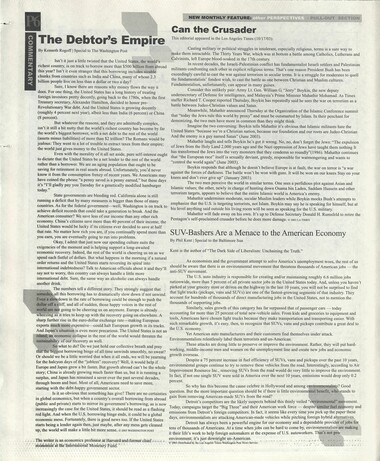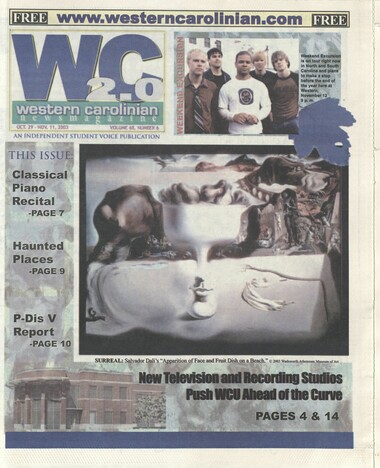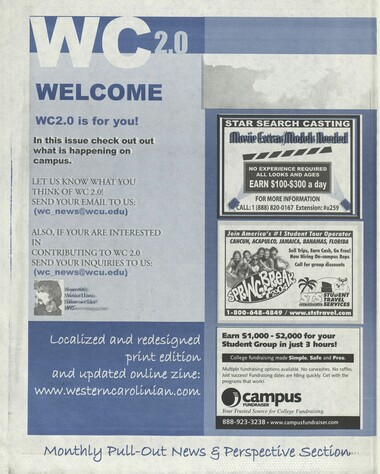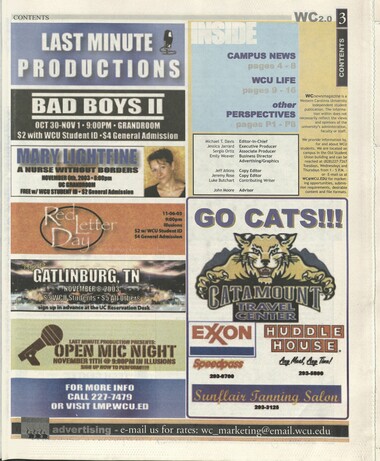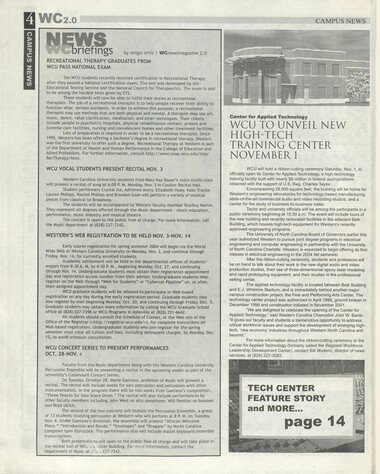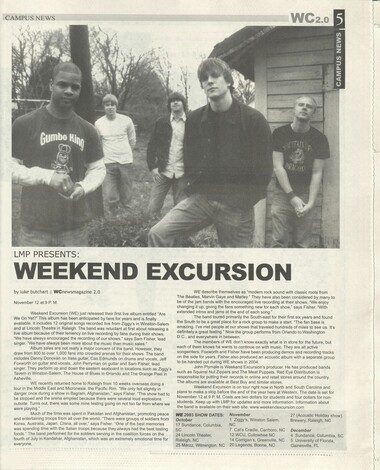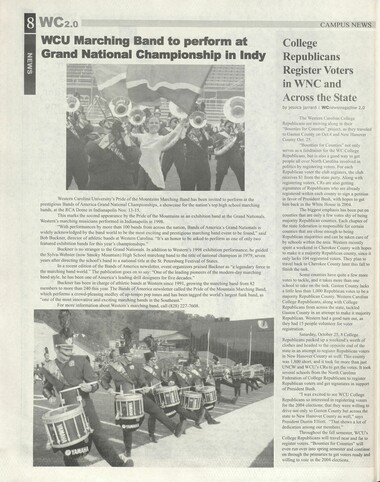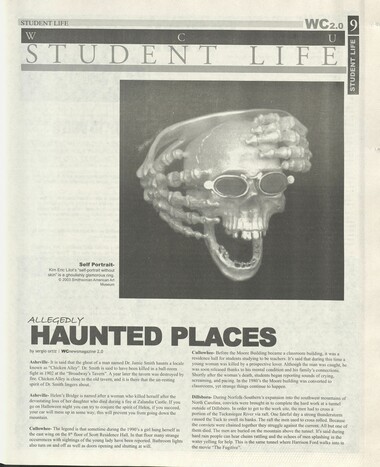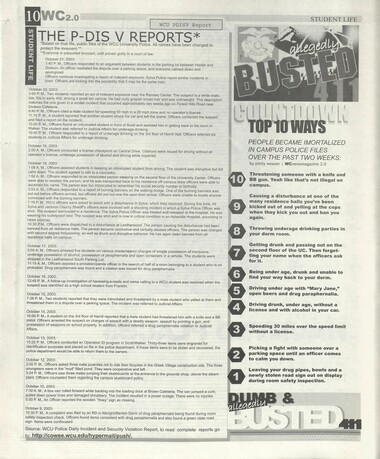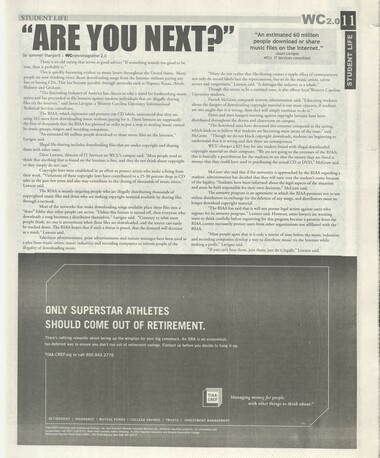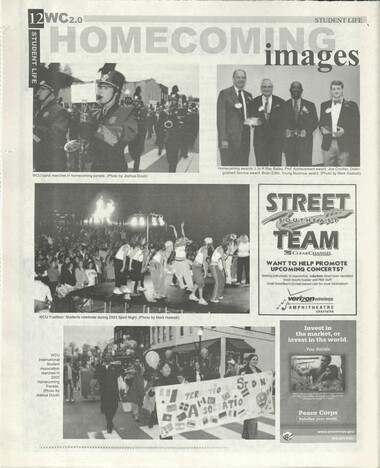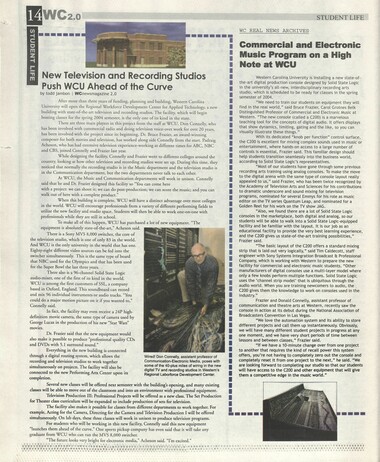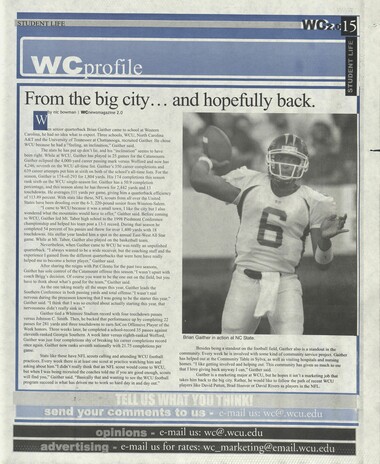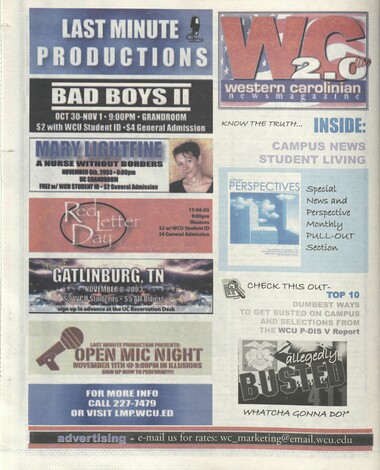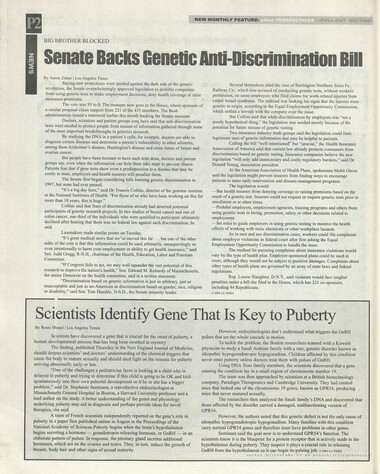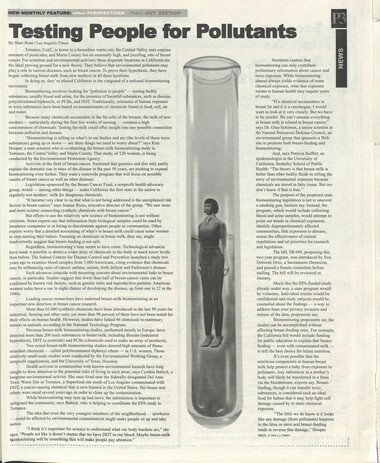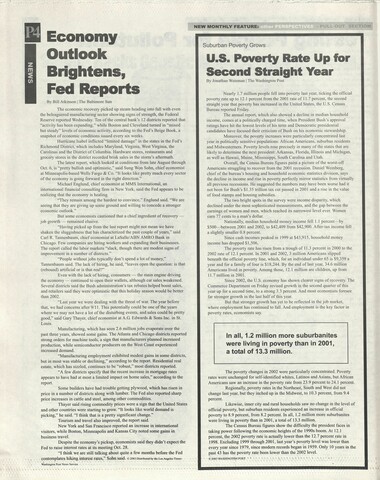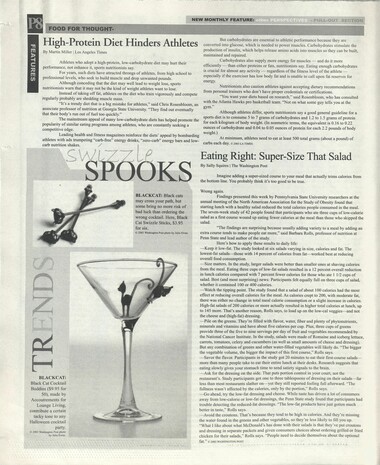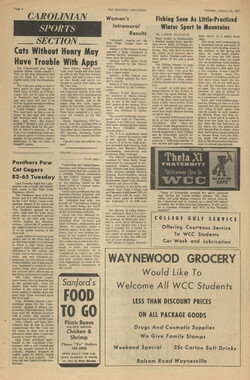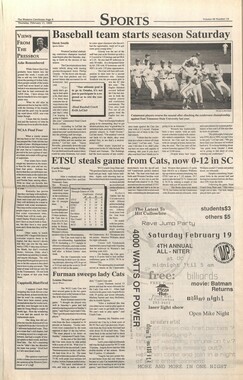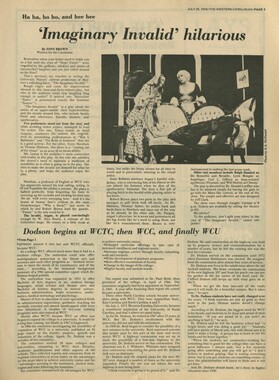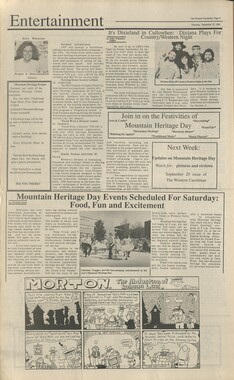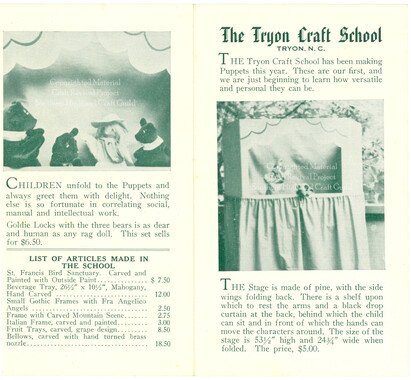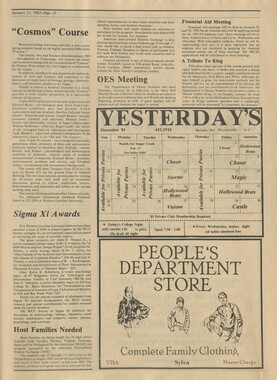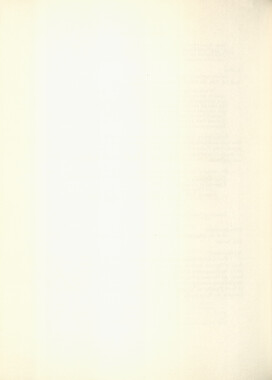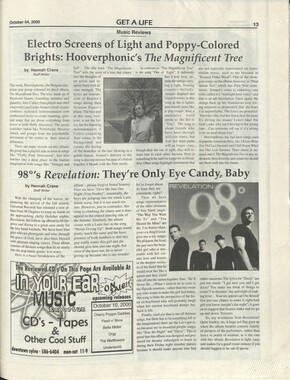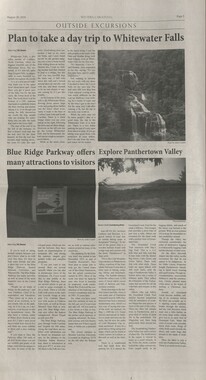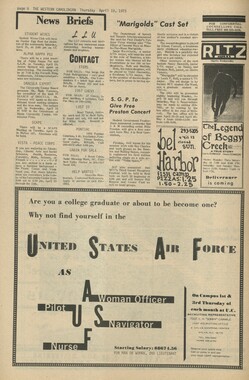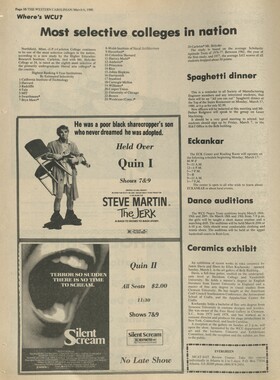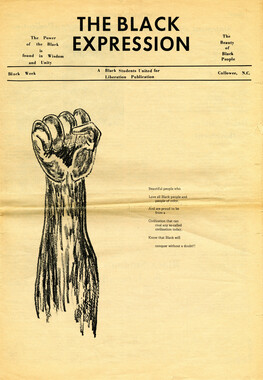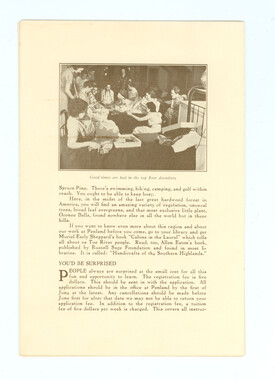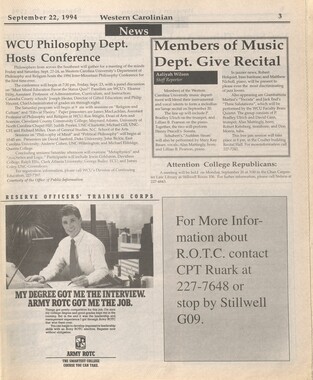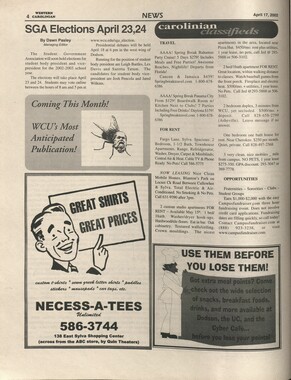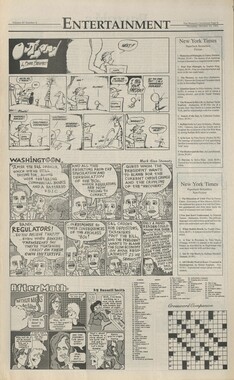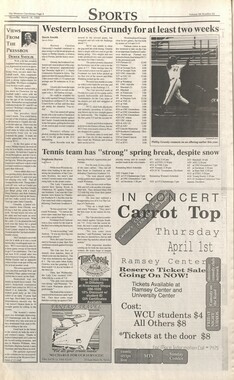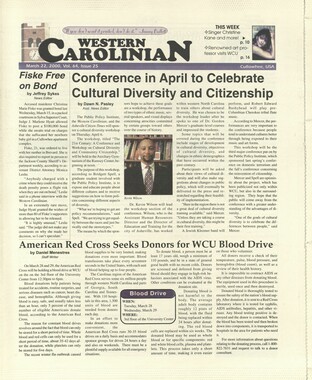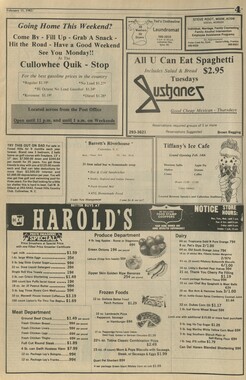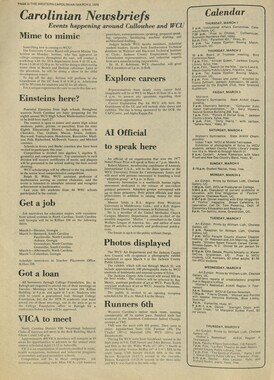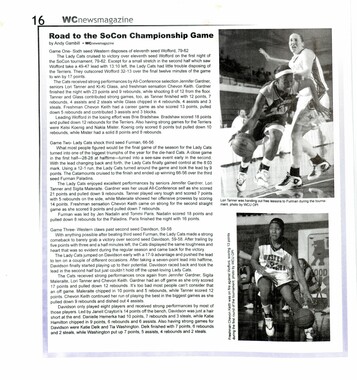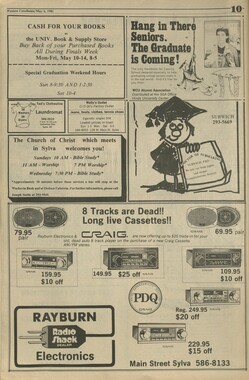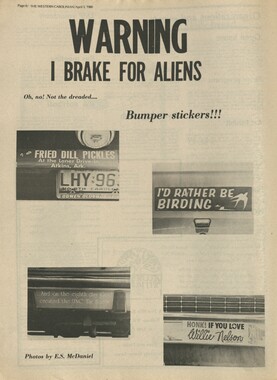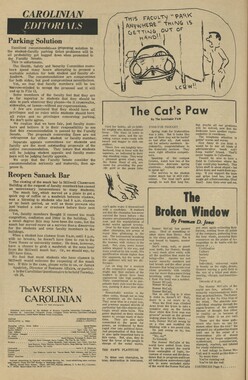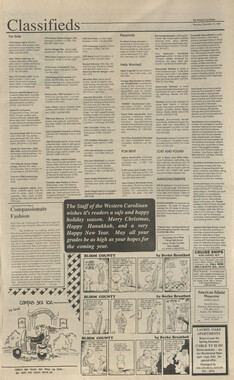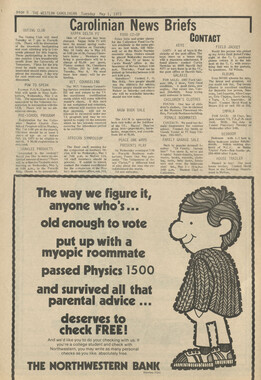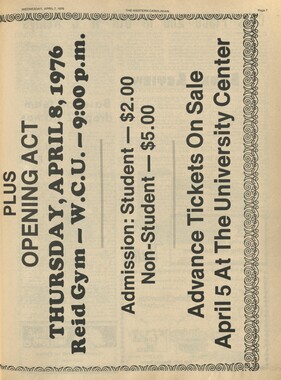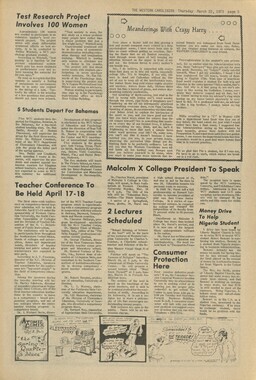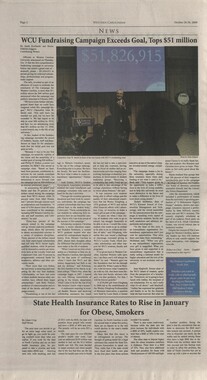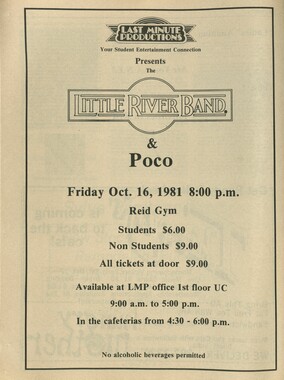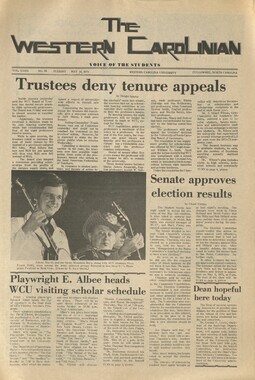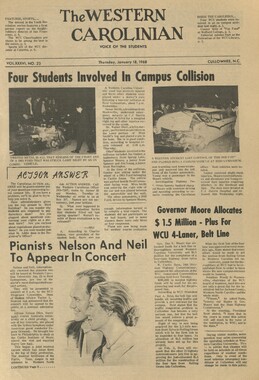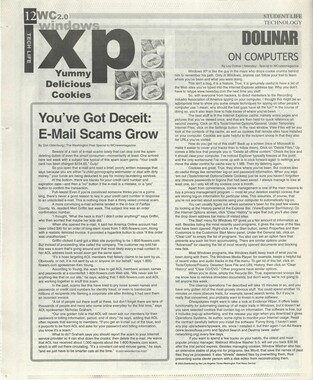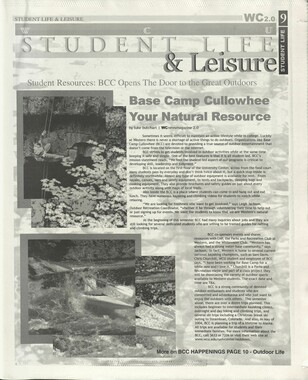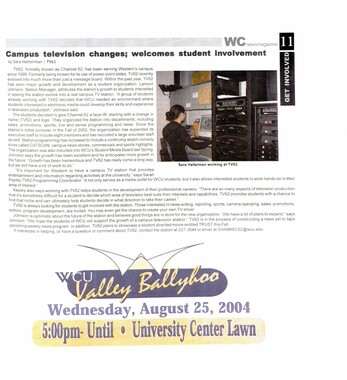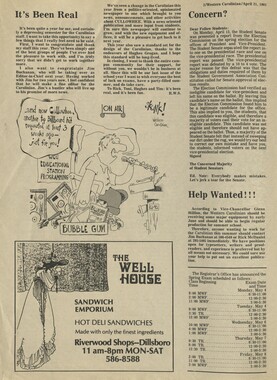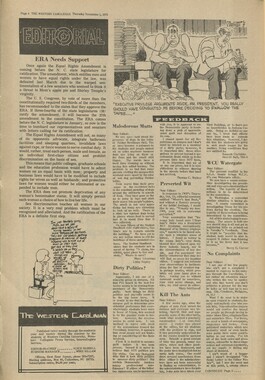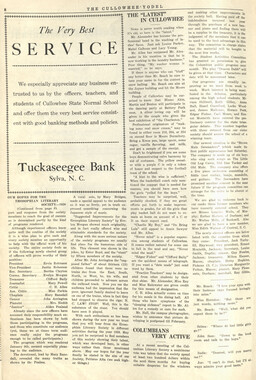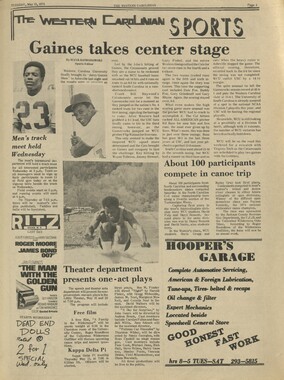Western Carolina University (20)
View all
- Canton Champion Fibre Company (2308)
- Cherokee Traditions (291)
- Civil War in Southern Appalachia (165)
- Craft Revival (1942)
- Great Smoky Mountains - A Park for America (2946)
- Highlights from Western Carolina University (430)
- Horace Kephart (941)
- Journeys Through Jackson (159)
- LGBTQIA+ Archive of Jackson County (85)
- Oral Histories of Western North Carolina (314)
- Picturing Appalachia (6873)
- Stories of Mountain Folk (413)
- Travel Western North Carolina (160)
- Western Carolina University Fine Art Museum Vitreograph Collection (129)
- Western Carolina University Herbarium (92)
- Western Carolina University: Making Memories (738)
- Western Carolina University Publications (2491)
- Western Carolina University Restricted Electronic Theses and Dissertations (146)
- Western North Carolina Regional Maps (71)
- World War II in Southern Appalachia (131)
University of North Carolina Asheville (6)
View all
- Allanstand Cottage Industries (62)
- Appalachian National Park Association (53)
- Bennett, Kelly, 1890-1974 (1463)
- Berry, Walter (76)
- Brasstown Carvers (40)
- Carver, George Washington, 1864?-1943 (26)
- Cathey, Joseph, 1803-1874 (1)
- Champion Fibre Company (233)
- Champion Paper and Fibre Company (297)
- Cherokee Indian Fair Association (16)
- Cherokee Language Program (22)
- Crowe, Amanda (40)
- Edmonston, Thomas Benton, 1842-1907 (7)
- Ensley, A. L. (Abraham Lincoln), 1865-1948 (275)
- Fromer, Irving Rhodes, 1913-1994 (70)
- George Butz (BFS 1907) (46)
- Goodrich, Frances Louisa (120)
- Grant, George Alexander, 1891-1964 (96)
- Heard, Marian Gladys (60)
- Kephart, Calvin, 1883-1969 (15)
- Kephart, Horace, 1862-1931 (313)
- Kephart, Laura, 1862-1954 (39)
- Laney, Gideon Thomas, 1889-1976 (439)
- Masa, George, 1881-1933 (61)
- McElhinney, William Julian, 1896-1953 (44)
- Niggli, Josephina, 1910-1983 (10)
- North Carolina Park Commission (105)
- Osborne, Kezia Stradley (9)
- Owens, Samuel Robert, 1918-1995 (11)
- Penland Weavers and Potters (36)
- Roberts, Vivienne (15)
- Roth, Albert, 1890-1974 (142)
- Schenck, Carl Alwin, 1868-1955 (1)
- Sherrill's Photography Studio (2565)
- Southern Highland Handicraft Guild (127)
- Southern Highlanders, Inc. (71)
- Stalcup, Jesse Bryson (46)
- Stearns, I. K. (213)
- Thompson, James Edward, 1880-1976 (226)
- United States. Indian Arts and Crafts Board (130)
- USFS (683)
- Vance, Zebulon Baird, 1830-1894 (1)
- Weaver, Zebulon, 1872-1948 (58)
- Western Carolina College (230)
- Western Carolina Teachers College (282)
- Western Carolina University (2008)
- Western Carolina University. Mountain Heritage Center (18)
- Whitman, Walt, 1819-1892 (10)
- Wilburn, Hiram Coleman, 1880-1967 (73)
- Williams, Isadora (3)
- Cain, Doreyl Ammons (0)
- Crittenden, Lorraine (0)
- Rhodes, Judy (0)
- Smith, Edward Clark (0)
- Appalachian Region, Southern (2569)
- Asheville (N.C.) (1923)
- Avery County (N.C.) (26)
- Blount County (Tenn.) (195)
- Buncombe County (N.C.) (1672)
- Cherokee County (N.C.) (283)
- Clay County (N.C.) (555)
- Graham County (N.C.) (236)
- Great Smoky Mountains National Park (N.C. and Tenn.) (519)
- Haywood County (N.C.) (3569)
- Henderson County (N.C.) (70)
- Jackson County (N.C.) (4912)
- Knox County (Tenn.) (35)
- Knoxville (Tenn.) (13)
- Lake Santeetlah (N.C.) (10)
- Macon County (N.C.) (420)
- Madison County (N.C.) (215)
- McDowell County (N.C.) (39)
- Mitchell County (N.C.) (132)
- Polk County (N.C.) (35)
- Qualla Boundary (982)
- Rutherford County (N.C.) (76)
- Swain County (N.C.) (2182)
- Transylvania County (N.C.) (270)
- Watauga County (N.C.) (12)
- Waynesville (N.C.) (86)
- Yancey County (N.C.) (72)
- Aerial Photographs (3)
- Aerial Views (60)
- Albums (books) (4)
- Articles (1)
- Artifacts (object Genre) (228)
- Bibliographies (1)
- Biography (general Genre) (2)
- Cards (information Artifacts) (38)
- Clippings (information Artifacts) (191)
- Copybooks (instructional Materials) (3)
- Crafts (art Genres) (622)
- Depictions (visual Works) (21)
- Design Drawings (1)
- Drawings (visual Works) (185)
- Envelopes (73)
- Exhibitions (events) (1)
- Facsimiles (reproductions) (1)
- Fiction (general Genre) (4)
- Financial Records (12)
- Fliers (printed Matter) (67)
- Glass Plate Negatives (381)
- Guidebooks (2)
- Internegatives (10)
- Interviews (815)
- Land Surveys (102)
- Letters (correspondence) (1013)
- Manuscripts (documents) (618)
- Maps (documents) (177)
- Memorandums (25)
- Minutes (administrative Records) (59)
- Negatives (photographs) (6090)
- Newsletters (1290)
- Newspapers (2)
- Notebooks (8)
- Occupation Currency (1)
- Paintings (visual Works) (1)
- Pen And Ink Drawings (1)
- Periodicals (193)
- Personal Narratives (10)
- Photographs (12976)
- Plans (maps) (1)
- Poetry (5)
- Portraits (4568)
- Postcards (329)
- Programs (documents) (181)
- Publications (documents) (2443)
- Questionnaires (65)
- Relief Prints (26)
- Sayings (literary Genre) (1)
- Scrapbooks (282)
- Sheet Music (2)
- Slides (photographs) (402)
- Songs (musical Compositions) (2)
- Sound Recordings (796)
- Specimens (92)
- Speeches (documents) (18)
- Tintypes (photographs) (8)
- Transcripts (322)
- Video Recordings (physical Artifacts) (23)
- Text Messages (0)
- A.L. Ensley Collection (275)
- Appalachian Industrial School Records (7)
- Appalachian National Park Association Records (336)
- Axley-Meroney Collection (2)
- Bayard Wootten Photograph Collection (20)
- Bethel Rural Community Organization Collection (7)
- Blumer Collection (5)
- C.W. Slagle Collection (20)
- Canton Area Historical Museum (2110)
- Carlos C. Campbell Collection (462)
- Cataloochee History Project (64)
- Cherokee Studies Collection (4)
- Daisy Dame Photograph Album (5)
- Daniel Boone VI Collection (1)
- Doris Ulmann Photograph Collection (112)
- Elizabeth H. Lasley Collection (1)
- Elizabeth Woolworth Szold Fleharty Collection (4)
- Frank Fry Collection (95)
- George Masa Collection (173)
- Gideon Laney Collection (452)
- Hazel Scarborough Collection (2)
- Hiram C. Wilburn Papers (28)
- Historic Photographs Collection (236)
- Horace Kephart Collection (861)
- Humbard Collection (33)
- Hunter and Weaver Families Collection (1)
- I. D. Blumenthal Collection (4)
- Isadora Williams Collection (4)
- Jesse Bryson Stalcup Collection (47)
- Jim Thompson Collection (224)
- John B. Battle Collection (7)
- John C. Campbell Folk School Records (80)
- John Parris Collection (6)
- Judaculla Rock project (2)
- Kelly Bennett Collection (1482)
- Love Family Papers (11)
- Major Wiley Parris Civil War Letters (3)
- Map Collection (12)
- McFee-Misemer Civil War Letters (34)
- Mountain Heritage Center Collection (4)
- Norburn - Robertson - Thomson Families Collection (44)
- Pauline Hood Collection (7)
- Pre-Guild Collection (2)
- Qualla Arts and Crafts Mutual Collection (12)
- R.A. Romanes Collection (681)
- Rosser H. Taylor Collection (1)
- Samuel Robert Owens Collection (94)
- Sara Madison Collection (144)
- Sherrill Studio Photo Collection (2558)
- Smoky Mountains Hiking Club Collection (616)
- Stories of Mountain Folk - Radio Programs (374)
- The Reporter, Western Carolina University (510)
- Venoy and Elizabeth Reed Collection (16)
- WCU Gender and Sexuality Oral History Project (32)
- WCU Mountain Heritage Center Oral Histories (25)
- WCU Oral History Collection - Mountain People, Mountain Lives (71)
- WCU Students Newspapers Collection (1923)
- Western North Carolina Tomorrow Black Oral History Project (69)
- William Williams Stringfield Collection (2)
- Zebulon Weaver Collection (109)
- African Americans (390)
- Appalachian Trail (35)
- Artisans (521)
- Cherokee art (84)
- Cherokee artists -- North Carolina (10)
- Cherokee language (21)
- Cherokee pottery (101)
- Cherokee women (208)
- Church buildings (189)
- Civilian Conservation Corps (U.S.) (111)
- College student newspapers and periodicals (2012)
- Dams (107)
- Dance (1023)
- Education (222)
- Floods (61)
- Folk music (1015)
- Forced removal, 1813-1903 (2)
- Forest conservation (220)
- Forests and forestry (1184)
- Gender nonconformity (4)
- Great Smoky Mountains National Park (N.C. and Tenn.) (181)
- Hunting (45)
- Landscape photography (25)
- Logging (119)
- Maps (83)
- Mines and mineral resources (8)
- North Carolina -- Maps (18)
- Paper industry (38)
- Postcards (255)
- Pottery (135)
- Railroad trains (72)
- Rural electrification -- North Carolina, Western (3)
- School integration -- Southern States (2)
- Segregation -- North Carolina, Western (5)
- Slavery (5)
- Sports (452)
- Storytelling (243)
- Waterfalls -- Great Smoky Mountains (N.C. and Tenn.) (66)
- Weaving -- Appalachian Region, Southern (280)
- Wood-carving -- Appalachian Region, Southern (328)
- World War, 1939-1945 (173)
Western Carolinian Volume 68 Number 06
Item
Item’s are ‘child’ level descriptions to ‘parent’ objects, (e.g. one page of a whole book).
-
-
BE "i eD The Debtors Empire By Kenneth Rogoff | Special to The Washington Post Isnt it just a little twisted that the United St richest country, is on track to borrow more than $500 this year? Isnt it even stranger that this borrowing inclu chunks from countries such as India and China, many of wine 2:3 billion people live on less than a dollar or two a day? Sure, I know there are reasons why money flows the way it does. For one thing, the United States has a long history of treating foreign investors pretty decently, going back to the 1780s, when the first Treasury secretary, Alexander Hamilton, decided to honor pre- Revolutionary War debt. And the United States is growing decently (roughly 4 percent next year), albeit less than India (6 percent) or China (8 percent). But whatever the reasons, and they are admittedly complex, isnt it still a bit nutty that the worlds richest country has become by far the worlds biggest borrower, with a net debt to the rest of the world (assets minus liabilities) of more than $2 trillion? The Romans would be jealous: They went to a lot of trouble to extract taxes from their empire; the world just gives money to the United States. Even with the morality of it all set aside, pure self-interest ought to dictate that the United States be a net lender to the rest of the world rather than a borrower. We are an aging population that ought to be saving for retirement in real assets abroad. Unfortunately, youd never know it from the consumption frenzy of recent years. We Americans may have coined the phrase a penny saved is a penny earned, but these days its I'll gladly pay you Tuesday for a genetically modified hamburger today. State governments are bleeding red. California alone is still Tunning a deficit that by many measures is bigger than those of many countries. As for the federal governmentwell, Washington is on track to achieve deficit records that could take a generation to break. And the American consumer? We save less of our income than any other rich economy. Chinas citizens save more than 40 percent of their income; the United States would be lucky if its citizens ever decided to save at half that rate. No matter how rich you are, if you continually spend more than you earn, you are eventually going to run into problems. Okay, I admit that just now our spending culture suits the exigencies of the moment and is helping support a long-awaited economic recovery. Indeed, the rest of the world is cheering us on as we spend each fistful of dollars. But what happens in the morning if a natural order returns and the United States starts reversing its spiral into international indebtedness? Talk to American officials about it and theyll say not to worry, this country can always handle a little more international debt. Sure, the same way an alcoholic can always handle another drink. The numbers tell a different story. They strongly suggest that all this borrowing has to dramatically slow down if not unwind. down in the rate of borrowing could be enough to push the liff, and all of sudden, those happy voices in the rest of going to be cheering us on anymore. Europe is already tries to keep up with the recovery going on elsewhere. A sharp further rise in the euro-dollar exchange ratemaking European biggest borrowing binge of all time unwinds smoothly, no sweat? Or should we be a little worried that when it all ends, we will be yearning for the halcyon days of the jobless recovery? Well, it would help if Europe and Japan grew a bit faster. But growth abroad cant be the whole story; China is already growing much faster than us, but it is running a surplus, and Japan has remained a saver over the past several decades, through boom and bust. Most of all, Americans need to save more, starting with the debt-happy government sector. Is it so obvious that something has give? There are no certainties in global economics, but when a countrys overall borrowing from abroad (public and private) starts to mirror its governments borrowing, as is now increasingly the case for the United States, it should be read as a flashing red light. And when the U.S. borrowing binge ends, it could be a global economic mess. Fortunately, there is good news too. If the United States starts being a lender again then, just maybe, after any mess gets cleaned up, the world will make a little bit more sense. 2003 WASHINGTON POST . The writer is an economics professor. at Harvard and former chief 24... economist at the Interriational Monetary Firid. " Can the Crusader This editorial appeared in the Los Angeles Times (10/17/03): Casting military or political struggles in intolerant, especially religious, terms is a sure way to make them intractable. The Thirty Years War, which was at bottom a battle among Catholics, Lutherans and Ivinists, left Europe blood-soaked in the 17th century. In recent decades, the Israeli-Palestinian conflict has fundamentalist Israeli settlers and Palestinian militants confronting each other in explicit religious terms. Thats one reason President Bush has been exceedingly careful to cast the war against terrorism in secular terms. It is a struggle for moderates to quell the fundamentalists fondest wish, to cast the battle as one between Christian and Muslim cultures. Fundamentalism, unfortunately, can appear in many guises. Consider this unlikely pair: Army Lt. Gen. William G. Jerry Boykin, the new deputy undersecretary of Defense for intelligence, and Malaysias Prime Minister Mahathir Mohamad. As Times staffer Richard T. Cooper reported Thursday, Boykin has repeatedly said he sees the war on terrorism as a battle between Judeo-Christian values and Satan. Meanwhile, Mahathir announced Thursday at the Organization of the Islamic Conference summit that today the Jews rule this world by proxy and must be outsmarted by Islam. In their penchant for demonizing, the two men have more in common than they might think. Imagine the two conversing: Boykin tells Mahathir its obvious that Islamic militants hate the United States because were a Christian nation, because our foundation and our roots are Judeo-Christian And the enemy is a guy named Satan (June 2003). Mahathir laughs and tells Boykin hes got it wrong. No, no, dont forget the Jews: The expulsion of Jews from the Holy Land 2,000 years ago and the Nazi oppression of Jews have taught them nothing It has transformed the Jews into the very monsters that they condemn so roundly(1986). Mahathir continues that the European race itself is sexually deviant, greedy, responsible for warmongering and wants to control the world again (June 2003). Boykin responds that although he doesnt believe Europe is at fault, the war on terror is a war against the forces of darkness. The battle wont be won with guns. It will be won on our knees Stay on your knees and dont ever give up (January 2003). The two men perceive the world in similar terms. One sees a perfidious plot against Asian and Islamic values; the other, newly in charge of hunting down Osama bin Laden, Saddam Hussein and other terrorism targets, appears to believe that the entire Islamic world is Americas enemy. Mahathir undermines moderate, secular Muslim leaders while Boykin mocks Bushs attempts to emphasize that the U.S. is targeting terrorists, not Islam. Boykin may say he is speaking for himself, but at his level anything said outside his living room will be seen as speaking for the U.S. military. Mahathir will fade away on his own. Its up to Defense Secretary Donald H. Rumsfeld to retire the Pentagons self-proclaimed crusader before he does more damage. 2003 LA TIMES SUV-Bashers Are a Menace to the American Economy By Phil Kent | Special to the Baltimore Sun Kent is the author of The Dark Side of Liberalism: Unchaining the Truth. As economists and the government attempt to solve Americas unemployment woes, the rest of us should be aware that there is an environmental movement that threatens thousands of American jobs the anti-SUV movement. The U.S. auto industry is responsible for creating and/or maintaining roughly 6.6 million jobs nationwide, more than 5 percent of all private sector jobs in the United States today. And, unless you havent parked at your grocery store or driven on the highway in the last 10 years, you will not be surprised to find that light trucks (pickups, vans and SUVs) are one of the fastest-growing segments of that industry. They account for hundreds of thousands of direct manufacturing jobs in the United States, not to mention the thousands of supporting jobs. Similarly, sales growth of this category has far surpassed that of passenger cars today accounting for more than 25 percent of total new-vehicle sales. From kids and groceries to equipment and tools, Americans have chosen light trucks because they make transportation and transporting easier. With such remarkable growth, its easy, then, to recognize that SUVs, vans and pickups contribute a great deal to the U.S. economy. Yet American auto manufacturers and their customers find themselves under attack. Environmentalists relentlessly label them terrorists and un-American. These attacks are doing little to preserve or improve the environment. Rather, they will put hard- working, middle-income men and women on the unemployment line and create new jobs and economic growth overseas. Despite a 75 percent increase in fuel efficiency of SUVs, vans and pickups over the past 10 years, environmental groups continue to try to remove these vehicles from the road. Interestingly, according to Air Improvement Resource Inc., removing SUVs from the road would do very little to improve the environment. In fact, if not one single SUV were sold in America over the next 10 years, emissions would drop only 0.2 percent. So why has this become the cause celebre in Hollywood and among question. But the more important question should be if there is little environm tands to gain from removing American-made SUVs from the road? Detroits competitors are the likely suspects behind this thinly veiled Today, campaigns target the Big Three and their American work force despit emissions from Detroits foreign competitors. In fact, it seems like every time you pick up the paper these days, environmentalists are attacking American-made vehicles while pitching foreign hybrid alternati Detroit has always been a powerful engine for our economy and a dependable provi tens of thousands of Americans. At a time when jobs can be hard to come by, enviro it their lifes work to help foreign automakers at the expense of U.S. autoworkers. T environment; its just downright un-American. a Maine ema 2003 Distributed by the Los Angeles Times- - Washington Post News Service CN a a ae
Object
Object’s are ‘parent’ level descriptions to ‘children’ items, (e.g. a book with pages).
-
The Western Carolinian is Western Carolina University's student-run newspaper. The paper was published as the Cullowhee Yodel from 1924 to 1931 before changing its name to The Western Carolinian in 1933.
-
